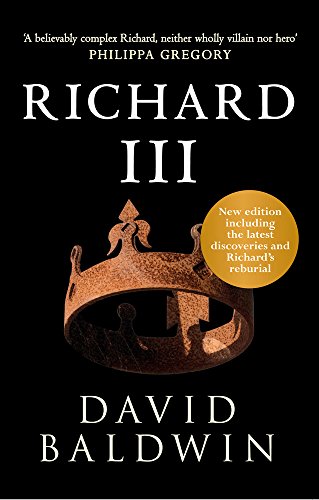Why a Booktrail?
1452 – 1485: Was Richard III the hunchbacked murderer he was said to be?

1452 – 1485: Was Richard III the hunchbacked murderer he was said to be?
Not many people would claim to be saints, or alternatively, consider themselves entirely without redeeming qualities. Some are unquestionably worse than others, but few have been held in greater infamy than Richard Plantagenet, afterwards Duke of Gloucester and, later still, King Richard III. Richard’s character has been besmirched as often as it has been defended, and the arguments between his detractors and supporters still rage after several centuries. Was he a ruthless hunchback who butchered his way to the throne, a paragon of virtue who became a victim of Tudor propaganda, or (as seems more likely) something in between?
The three major sites to visit in order to follow in the footsteps of Richard III
“The Princes in the Tower” refers to the two princes Edward V, King of England and Richard of Shrewsbury, Duke of York. The two brothers were the only sons of Edward IV of England and when they were 12 and 9 years old, respectively, they were lodged in the Tower of London by tRichard III. He was supposedly looking after them until Edward’s forthcoming coronation as king. Richard took the throne and the boys were never seen again.
Fotheringhay Castle was a favoured residence of Richard, who became Duke of York . His son Richard III was also born here in 1452.
Mary, Queen of Scots, was imprisoned for some 18 years at nearby Sheffield Castle spent her final days at Fotheringhay, where she was tried and convicted of treason.
The Battle of Bosworth Field was the last significant battle of the Wars of the Roses. Richard III, the last king of the House of York, was killed in the battle. Henry Tudor was victorious and became the first English monarch of the Tudor dynasty.
The final resting place of Richard III whose remains were found underneath a carpark. There’s also a statue of the main himself holding his crown.
Destination: Leicester, London, Fotheringhay Author/Guide: David Baldwin Departure Time: 1452 – 1485
Back to Results